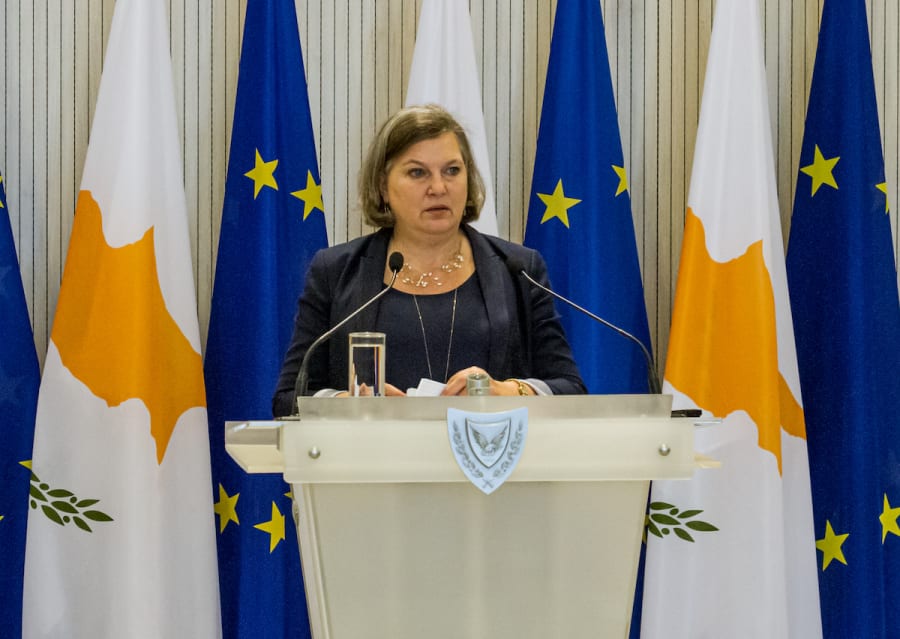Israel’s EastMed gas pipeline to Europe is ‘too expensive, not viable,’ according to top US diplomat
Joint initiative between Israel, Cyprus, Greece and Italy to deliver natural gas to Europe – as an alternative to Russian gas supply – may take too long to implement

Against the backdrop of a global energy crisis, representatives from the United States, Israel and European Union countries have held talks in recent days to discuss potential ways to transport natural gas from Israel through the Mediterranean Sea to Europe, as an alternative to Russian gas supply.
One proposed solution is the Eastern Mediterranean gas pipeline, known as EastMed. The project, still currently in design, would deliver natural gas from Israel’s offshore Levantine Basin via the Greek Cypriot into Greece and from there, to Italy and other European markets.
However, U.S. Under Secretary of State Victoria Nuland said on Thursday that the EastMed is too expensive, not economically viable and will take too long to help countries seeking alternatives to Russian gas any time soon.
The top U.S. diplomat stressed that the pipeline project wouldn’t be able to deliver the gas to Europe as quickly as needed because it would run through very deep water and construction would take more than a decade.
“And frankly, we don’t have 10 years but in 10 years from now, we want to be far, far more green and far more diverse” in energy sources, Nuland said. “So, what we’re looking for within the hydrocarbon context are options that can get us more gas, more oil for this short transition period.”
Earlier this week, Nuland met in Athens with Israel’s Foreign Minister Yair Lapid and top diplomats from Greece and Cyprus.
In a conversation with Cypriot President Nicos Anastasiades, Nuland mentioned that countries in the region have understood that dependence on Russian oil and gas is “an extremely bad bet” following Moscow’s decision to invade Ukraine.
Up until the invasion, Germany imported 55% of its natural gas from Russia. Italy was the second-largest natural gas importer in Europe, with 45% of its gas coming from Russia. Italy recently signed an agreement to increase its imports from Algeria.
Turkey, which is not involved in the EastMed pipeline, might be encouraged by the Biden administration’s rejection of the project which was previously supported by the Trump administration.
In recent months, Turkish President Tayyip Erdoğan has been making overtures towards Israel in hopes to amend diplomatic ties and explore ways to cooperate.
Turkey expert, Hay Eytan Cohen Yanarocak, recently told ALL ISRAEL NEWS that from Turkey’s standpoint it is a great opportunity. “Maybe with a counter-offer they can persuade the Israeli government to leave the EastMed alliance and form a different energy deal with Turkey,” Yanarocak explained.

Tal Heinrich is a senior correspondent for both ALL ISRAEL NEWS and ALL ARAB NEWS. She is currently based in New York City. Tal also provides reports and analysis for Israeli Hebrew media Channel 14 News.













